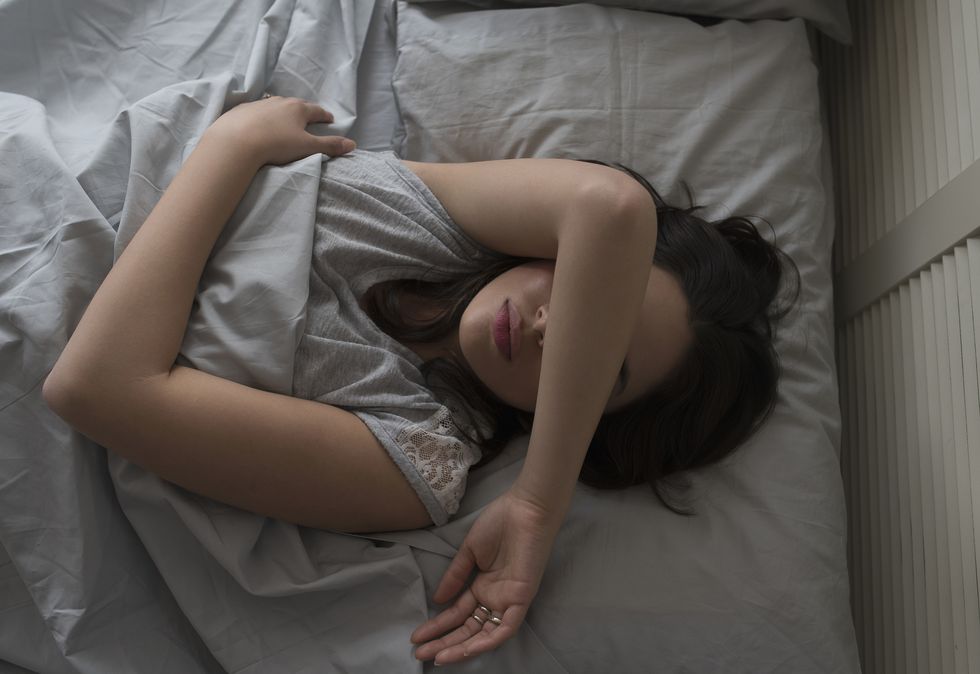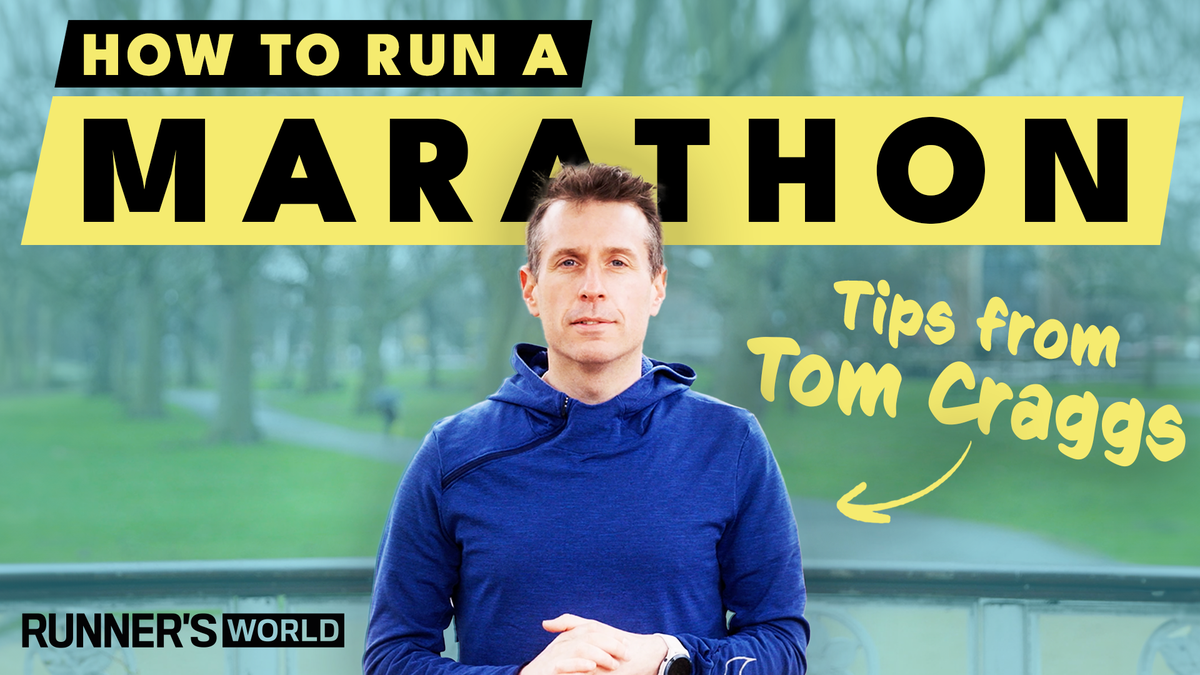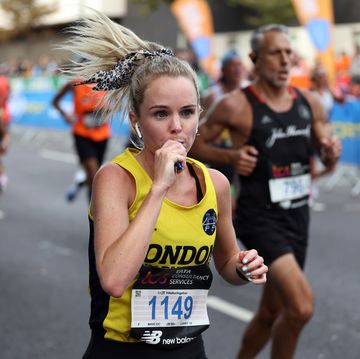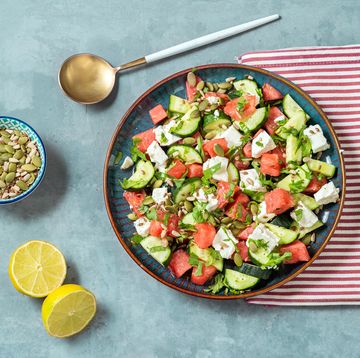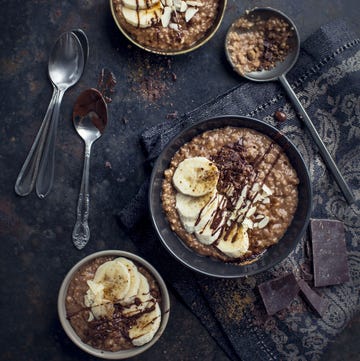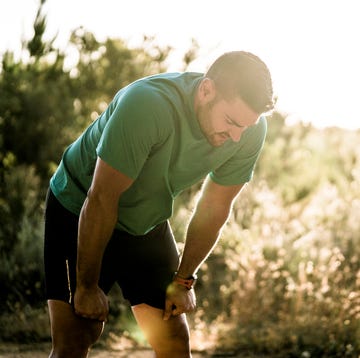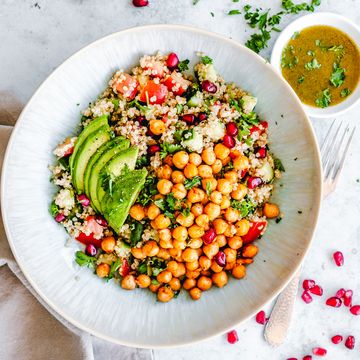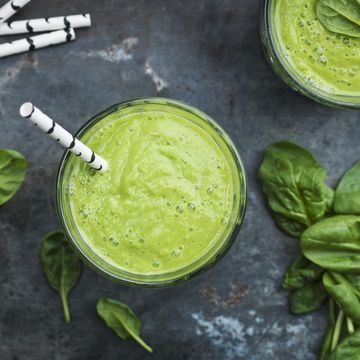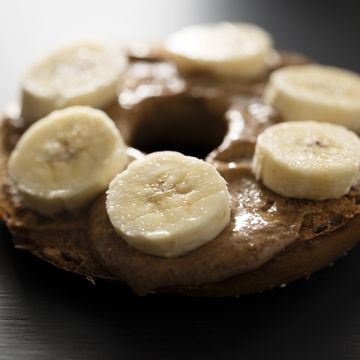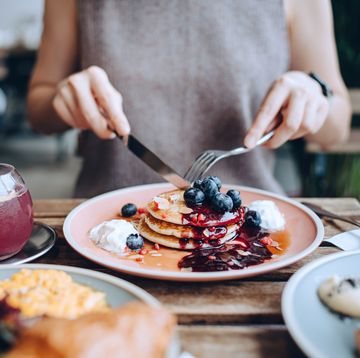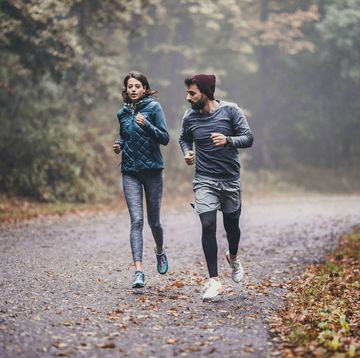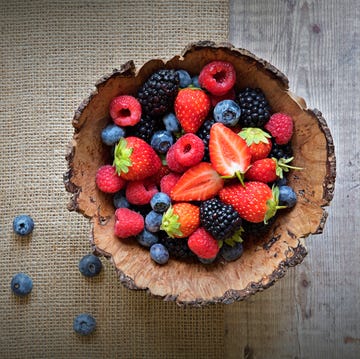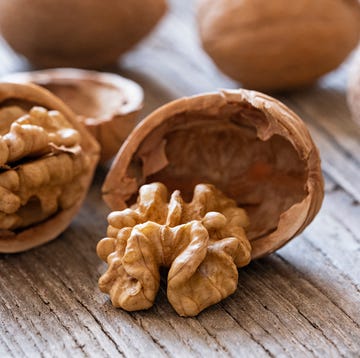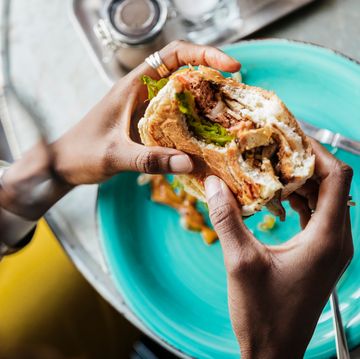Do you arrive at the start line of a race looking like bleary-eyed zombie, and feeling like whatever that feels like? While sucking down a caffeinated energy gel, you recall a sleepless night of tossing, turning and stumbling to the bathroom before passing out at around 3am. You may attribute your poor night’s rest to prerace jitters, but it could have been something you ate. Some foods have characteristics, such as a certain macronutrient breakdown or a particular chemical compound, such as saturated fat, that can mess with your sleep.
Related: Why you should be sleeping your way to a PB
Feeling more groggy than energised before a run? Avoid these 11 sleep-sappers:
1. Coconut oil
Using this trendy oil for your stir-fry seems like a good idea, but it can have a negative impact on your sleep. A study in the Journal of Sleep Research suggests that consuming hexadecanoic acid, a saturated fat found in coconut oil, may interfere with your ability to get good-quality shut-eye. Instead, opt for olive oil, which contains only unsaturated fat and provides additional heart-health benefits.
2. Tea
Although a cup of tea before bed is a common ritual, this warm beverage may not be the best pre-sleep option. Black and green teas contain caffeine and another sleep-disturbing compound, called theobromine, which can act as a diuretic and increase your heart rate. Choose herbal noncaffeinated tea to avoid both of these stimulants and drink it a few hours before bed to give you enough time to use the bathroom if needed.
3. Tomato sauce
When it comes to getting a good night’s sleep, you may want to pass on this pasta topper. The acidity in the tomatoes can cause heartburn for those who suffer from acid reflux, and tomato sauce also contains the amino acid tyramine. This triggers the brain to release noradrenaline, a stimulant that boosts brain activity and inhibits sleep.
Related: 6 carb-loading recipes that don't involve pasta
4. Chocolate
Although you may only eat a small amount, chocolate naturally contains caffeine, which may be problematic for people who are not used to consuming it regularly. Like tea, this sweet treat also has the stimulating compound theobromine. But don’t panic: if you must have your sweet fix, white chocolate is a reasonable substitute, as it’s naturally caffeine-free. Still, go easy: it’s full of sugar.
5. Alcohol
We know nothing tastes as good as a cold beer after a long run or a glass of wine at the end of a busy day. But hear us out: while alcohol is a natural depressant that may help you feel drowsy, it actually makes it difficult to go into a deep sleep, which affects how rested you feel in the morning. Plus, a hangover is definitely not the way you want to start a long run or race. There’s nothing wrong with alcohol in moderation, but be conscious of your consumption during training blocks or before a big event.
6. Steak
Sure, go ahead and treat yourself to a slab of juicy fillet every once in a while – but not when you need a good night’s sleep. Research shows that eating foods high in saturated fat, such as steak, interferes with deep sleep. These foods also take longer to digest, causing indigestion that can keep you up at night. Stick to veggie-based dishes, lean proteins or fish when good sleep is needed.
Related: 19 high-protein foods for vegetarian and vegan runners
7. Fizzy drinks
These sugary drinks are not a great idea. Regularly consuming them, especially those that contain caffeine and sugar – such as cola and some energy drinks – has been linked to short sleep duration.
8. Crisps and salsa
Unfortunately for flavour lovers, spicy foods – hang your head, salsa! – can trigger heartburn, which can be exacerbated when you’re lying down. And new research has found that eating less sodium throughout the day will reduce your toilet trips at night. Skip the salty crisps and salsa or try mild guacamole with a side of crudités, instead.
9. Water
A glass of water before bed is fine (and recommended), but trying to hydrate for your morning run by chugging several glasses can lead to frequent trips to the loo in the middle of the night. Instead, drink water regularly throughout the day. You can also snack on water-rich fruits, which are a good source of serotonin, to aid restful sleep.
10. Ice cream
This is going to be unpopular advice, but you might want to put down that spoon. Foods that are high in saturated fat and sugar, and low in fibre, can result in less restorative sleep and more nighttime waking. Unfortunately, ice cream fits the bill. If the craving calls, try making ‘nice’ cream by blending a frozen banana with a handful of fruit or a tablespoon of nut butter for a healthier alternative.
11. Sriracha sauce
If you’re the type of person who douses everything in this hot sauce, think twice about using it the night before a race. As with salsa, the intense spiciness can exacerbate heartburn and indigestion symptoms for some, and hinder your shut-eye. Instead, add a dash of chilli powder to your food for a smoky flavour without all the spice.
